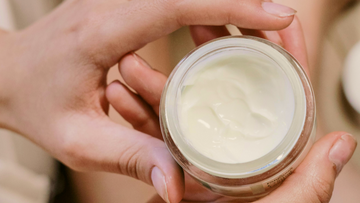

Why Minimally Processed Ingredients Matter in Personal Care
The Truth About Ingredients: Are You Really Getting the Good Stuff?
Picture this: You buy a "natural" skincare product, excited about the botanical ingredients listed on the label, rose, aloe, turmeric, coconut oil. But what if those ingredients have been stripped, bleached, deodorized, or mixed with synthetic stabilizers before they even touch your skin?
This is where minimally processed ingredients make all the difference.
We’re living in a time where clean beauty is no longer just a trend, it’s an expectation. But what makes an ingredient truly effective? It’s not just about where it comes from but also how it’s processed. Minimal processing means preserving the integrity of natural ingredients, ensuring they deliver their full benefits without unnecessary chemical intervention.
What Is Minimal Processing in Personal Care?
In the world of personal care, minimal processing refers to techniques that retain the potency of plant-based ingredients without altering their natural structure. This means avoiding excessive heat, chemical solvents, or artificial preservatives that strip away vital nutrients. Instead, processes such as:
- Cold-Pressing: Extracting oils without heat to preserve their nutrients.
- Steam Distillation: Using water vapor to gently extract essential oils and floral waters.
- Sun-Drying & Hand-Grinding: Keeping herbal powders potent by avoiding artificial heat.
- Fermentation & Natural Preservation: Enhancing ingredient effectiveness without synthetic stabilizers.
These methods ensure that the bioactive compounds remain intact, delivering real results for skin and hair.
Why Does It Matter? The Benefits of Minimal Processing
Potency: The More, The Better
Highly processed ingredients lose their natural vitamins, antioxidants, and essential fatty acids. When an ingredient is minimally processed, it retains its full range of nutrients, making it far more effective.
Example: Cold-pressed oils like coconut and almond oil keep their nourishing fatty acids intact, deeply hydrating the skin. In contrast, refined versions lose much of their potency due to high-heat processing.
Safer for Sensitive Skin
Many skincare reactions stem from synthetic preservatives, stabilizers, and emulsifiers used to enhance shelf life. Minimally processed ingredients, free from artificial additives, reduce the likelihood of irritation.
Example: Raw shea butter, packed with natural anti-inflammatory properties, soothes dry skin and eczema. Highly refined shea butter, on the other hand, may contain added chemicals that strip away its natural benefits.
A Win for the Planet
Minimal processing requires less energy, fewer industrial chemicals, and generates lower waste, making it the sustainable choice for beauty.
Example: Steam-distilled rose water requires no harsh solvents or synthetic chemicals, while mass-produced floral extracts often involve synthetic stabilizers and chemical-enhancing processes.
Aligns with Traditional Wisdom
India’s rich beauty traditions have long relied on fresh, raw, and naturally processed ingredients. From sandalwood to turmeric, these time-tested practices have always prioritized ingredients in their most natural state for optimal results.
Example: Freshly ground sandalwood paste provides cooling benefits, whereas processed sandalwood products often contain synthetic fragrances and stabilizers.
The Challenge: Why Isn’t Everyone Doing This?
While minimal processing offers significant benefits, it comes with its own set of challenges:
Shorter Shelf Life: Without synthetic preservatives, products may have a shorter lifespan—but natural alternatives like vitamin E and rice bran extract help maintain freshness.
Variability in Ingredients: Natural ingredients change with seasons, making consistency a challenge. Ethical sourcing from organic farms ensures purity and potency.
Higher Costs: Minimal processing requires more time and effort, making these products relatively more expensive, but they’re worth every drop.
How to Identify Minimally Processed Personal Care Products
Not all "natural" products are truly natural. Here’s how to tell if your skincare is the real deal:
Look for Cold-Pressed Oils – Check if plant oils (like coconut, almond, and sesame) are labeled as cold-pressed or virgin instead of refined.
Prefer Steam-Distilled Floral Waters – Rose water, lavender water, and hydrosols should be steam-distilled rather than containing synthetic fragrance additives.
Check for Whole Herb Extracts – ingredients like neem, turmeric, and sandalwood should be listed in their raw or minimally processed form rather than as chemically extracted isolates.
Avoid Harsh Chemical Preservatives – Opt for products preserved with natural antioxidants (vitamin E, rosemary extract, rice bran protectant) instead of parabens and synthetic stabilizers.
Read the Ingredient List Closely – The shorter and simpler, the better. If a product has dozens of unfamiliar chemical names, chances are it’s highly processed.
The Future of Beauty: A Return to the Roots
As conscious consumers, we have the power to demand cleaner, more authentic formulations. Brands are already embracing this shift, focusing on transparency, sustainability, and ingredient integrity. The future of skincare is not about adding more, it’s about keeping things as close to nature as possible.
Because when it comes to beauty, less is more.


